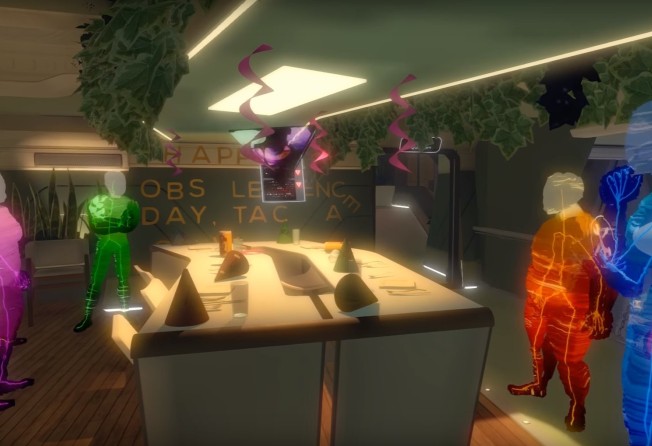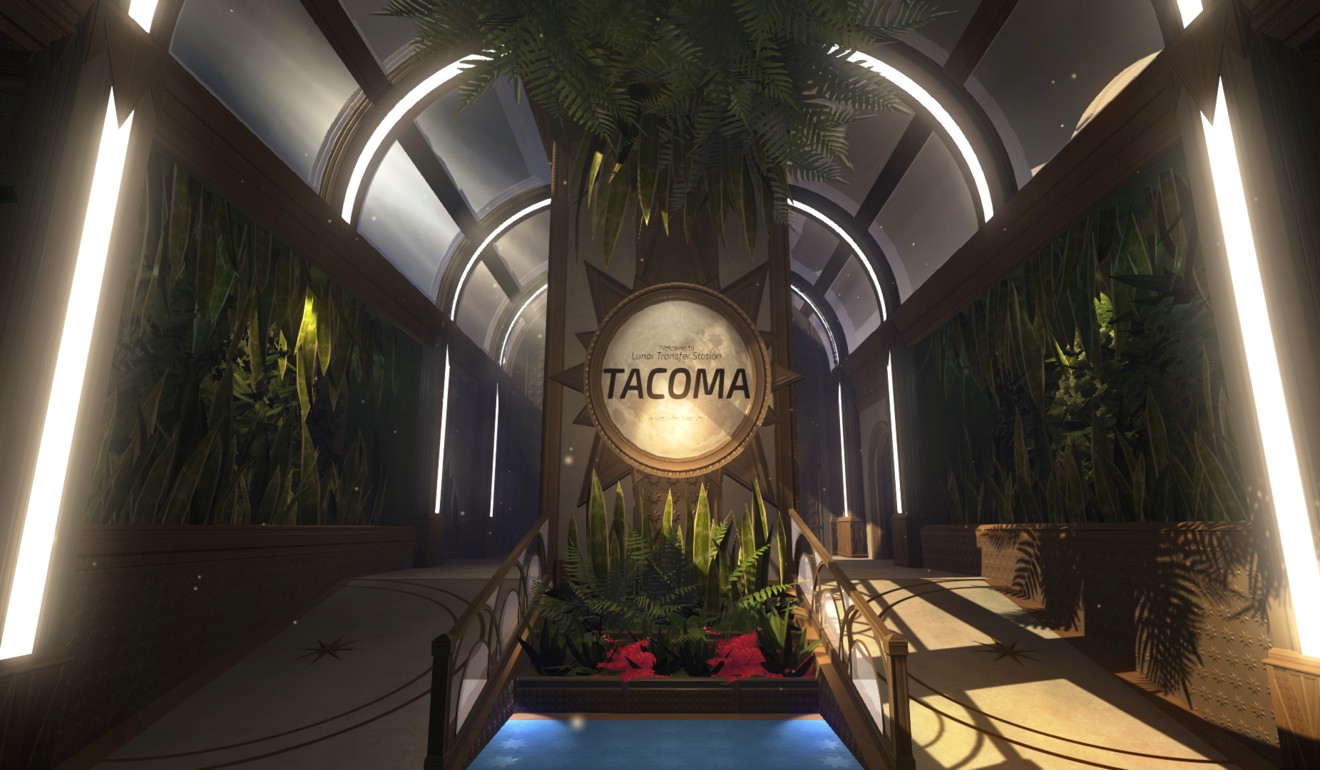Game review: Tacoma, by makers of Gone Home, takes voyeuristic storytelling into space
Sent to an abandoned space station on a recovery mission, players slowly unravel the mystery of the crew’s disappearance by finding and watching data left over by their augmented reality systems

Fullbright
4/5 stars
Four years ago developer The Fullbright Company (now just Fullbright) released Gone Home, a game about a young woman who returns from college to find her family’s home has been mysteriously vacated. At the time, the idea of a story-driven video game that contained no action sequences was still fairly audacious. Only a few games, The Stanley Parable (2011) and Dear Esther (2012) among them, had trodden a similar path and earned critical and commercial success.
Yet unlike those games, which used existential shenanigans and literary language, respectively, to buttress their simple gameplay mechanics, Gone Home showed that voyeurism could also drive player engagement. Snooping through the family’s stuff is the main activity in that game and it is arguably more engrossing than solving its central mystery.
Tacoma (for PC and Xbox One), the new game from Fullbright, is set on a space station in 2088. Though the setting and context are vastly different from the 1990s household in Gone Home, the player’s journey is similarly tied to prying into other people’s lives. As such, the game domesticates the space adventure by making its characters and setting all-important.
The plot does contain a couple of twists, although the revelations aren’t earth-shattering. Yet, in light of the overall history of video games, perhaps a developer that leavens their work with anticlimactic moments is braver than one that habitually goes in for bombast.
As Ami Ferrier, it’s your job to recover the physical processing module of Odin, the AI system assigned to the abandoned lunar transfer station Tacoma, which is owned by The Venturis Corporation. Soon after your ship docks, you receive a message via your personal augmented reality (AR) system – a holographic email in the air – telling you to refrain from examining any of the data left over from the Tacoma crew’s own AR systems.

The corporation believes all of the data gathered from the crew, through a system of total surveillance, should be deleted and the information inadvertently left should be ignored. Heightening the irony, you also encounter a legal agreement stipulating that you’ll honour the Venturis Corps’ “data privacy rights”.
Clearly something has gone down. The AI responsible for a number of the station’s functions was remotely turned off and the Tacoma’s six-person crew is missing. Naturally, you’ll want to scoop up any personal or corporate information you find since that’s the thing to do in this game. Watching the crew’s AR data is like seeing their digital ghosts. Their features are unclear but their outlines are visible, like heat signatures.
You can manipulate their AR traces like video – rewinding, fast-forwarding and pausing as you see fit – while walking around them as if you were in an interactive theatre. Throughout the game you’ll do this to follow different events unfolding simultaneously. You may therefore find yourself following one conversation and then rewinding time to follow and observe someone in another area of the station as they punch in a keycode to open a door at that same point in time.
Tacoma’s core appeal comes from watching the characters behave differently as they move between areas and interact with each other. You might find one of the crew members having a panic attack in a room by herself, then make her way to another area where she speaks to a colleague in a completely calm manner.
Anyone who has struggled to maintain a work-life balance should find the Tacoma crew’s ongoing preoccupation with that topic relatable. The subject is backlit by the game’s vision of a future in which corporations push for more job automation while workers’ interest groups lobby to keep people from being phased out of the workforce.
In this, Tacoma is an ode to the working stiffs in the galaxy.